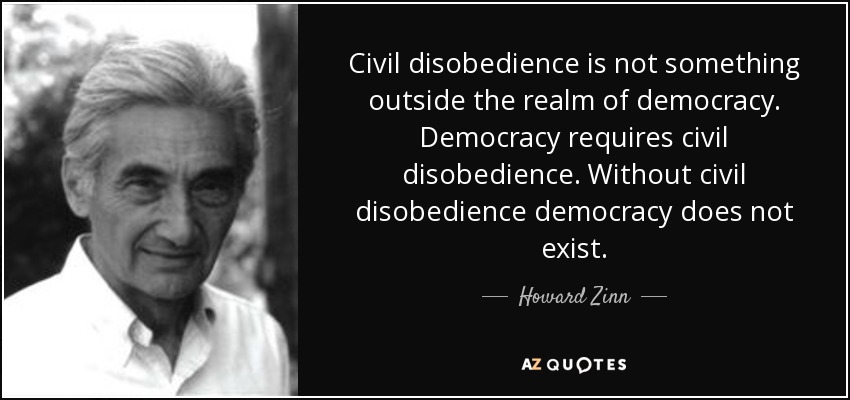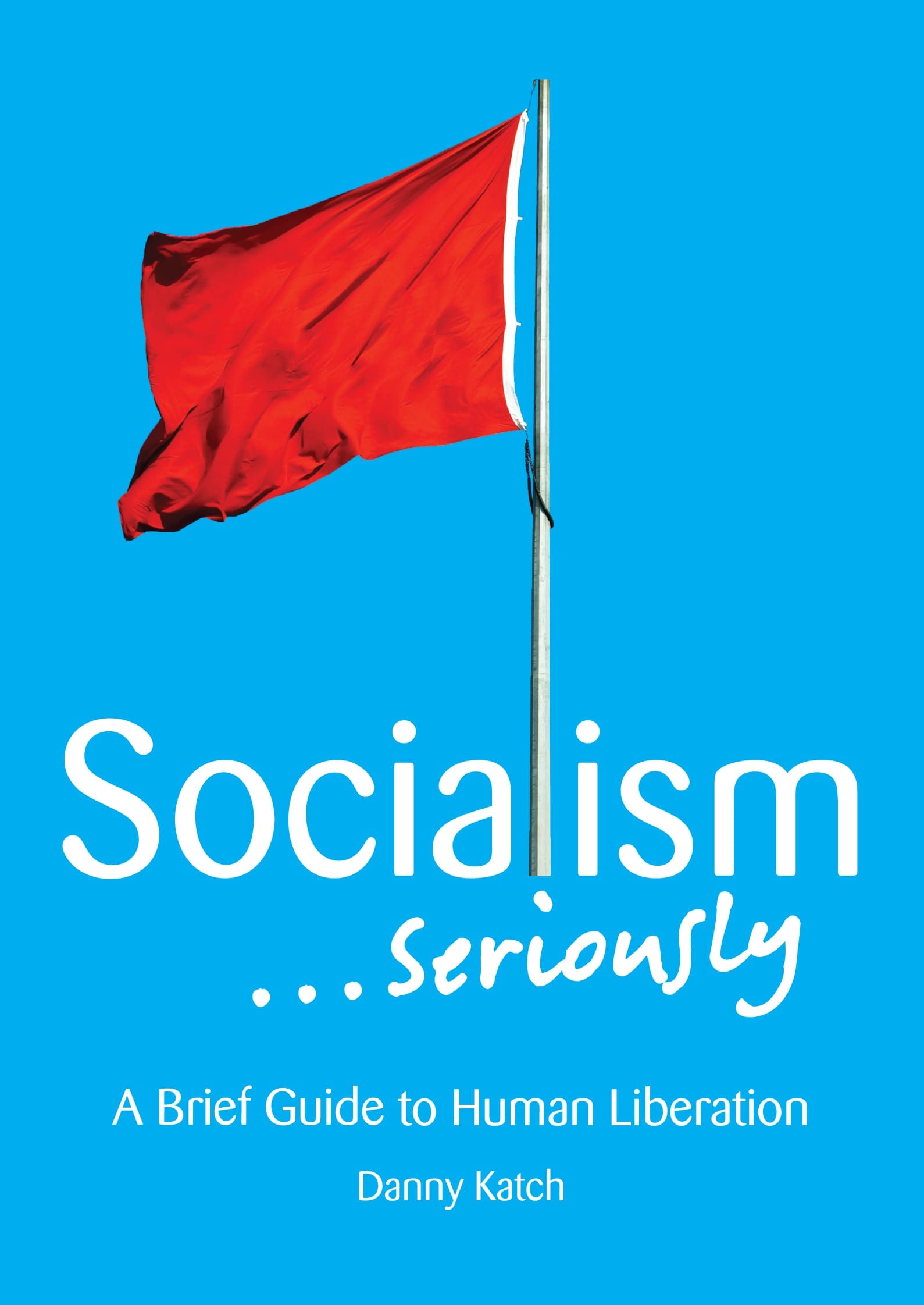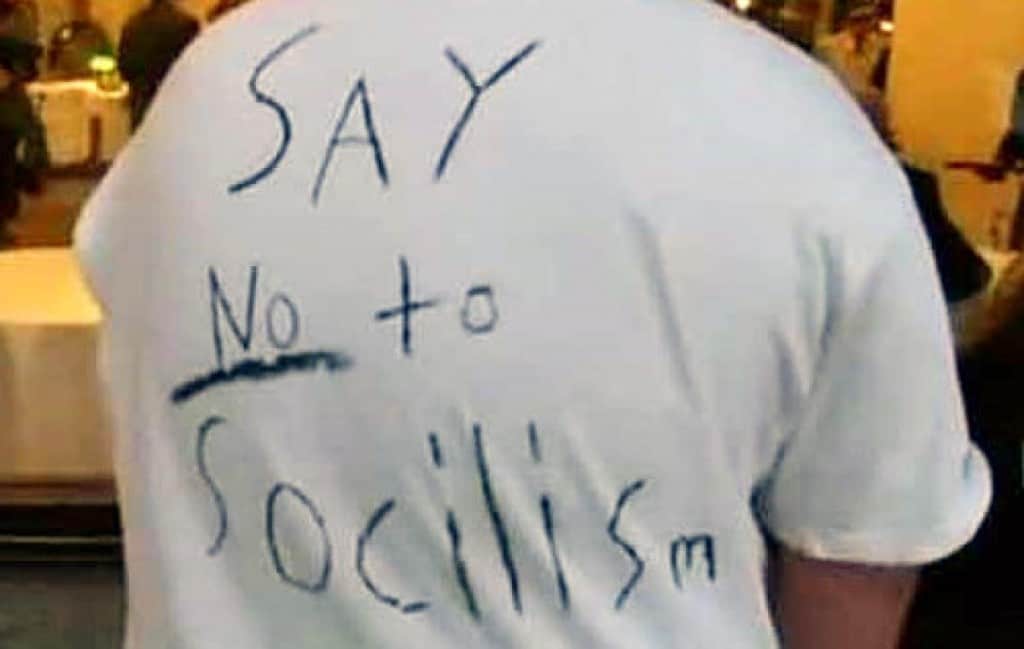Disobedience and Democracy is a short essay Howard Zinn wrote in response to a short essay about Law and Order written by a Supreme Court Justice. Zinn outlines nine fallacies in the original essay, quoting extensively enough so that reading it is unnecessary. Each fallacy deals with a more fundamental question on law and order; when, if ever, it is morally permissible to break the law through protest? According to Judge Fortas, the justice who wrote the piece Zinn is eviscerating, the answer is never. Zinn disagrees.
It’s hard not to look at Zinn’s argument as a relic. The moral peril the nation was in at the time of his essay seemed greater than that of today. We’re talking about the Vietnam War, McCarthyism, redlining, and remnants of Jim Crow. So when Zinn states the scope of the civil disobedience in question did not outweigh the immorality of the things they protested, this seems, somehow, truer than today. When Zinn argues that burning your draft card or blocking the road to a chemical weapons manufacturer doesn’t compare to the atrocities of an illegal war, the benefit of hindsight means there are few of us who would disagree as modern readers.
That said, it is important for the modern reader to understand that Zinn’s arguments, at the time, were not widely accepted. That which he advocated the protest of is more comparable to what is happening today than we may be willing to admit while reading argumentative essays of the past. The Vietnam war and the conquests of Indo-Asia/Latin America can strike parallels to the relentless wars in the Middle East today. Surely we can use the same fallacies of law and order when assessing the moral decision demanded of the nation in the case of Edward Snowden, or Standing Rock, or Flint Michigan.
In this regard, Zinn’s words are more relevant than ever. Providing a moral justification and guidebook for disobedience against the state, Disobedience, and Democracy becomes essential reading at a time when democracy is most threatened. While we like to believe we exercise control over our lives by merely participating in democracy, the reality is that we don’t have a say in far too many ways. Americans don’t vote on foreign policy or wars, they don’t decide how much of their taxes go to schools vs corporate subsidies, and with so much corporate spending in elections, they don’t really even elect the leaders that make these decisions. Zinn makes the compelling argument that when democracy becomes an obsolete tool of change, disobedience becomes increasingly necessary.
Whether you’re protesting the state at Standing Rock or the Bundy Ranch, Zinn’s line of questioning will prove invaluable. What do we owe the sanctity of law and what does it owe us? Why must civil disobedience necessarily be non-violent? What are the limits of our government and how do we keep it in check?
If you’re planning to get organized, don’t leave home without your copy.



